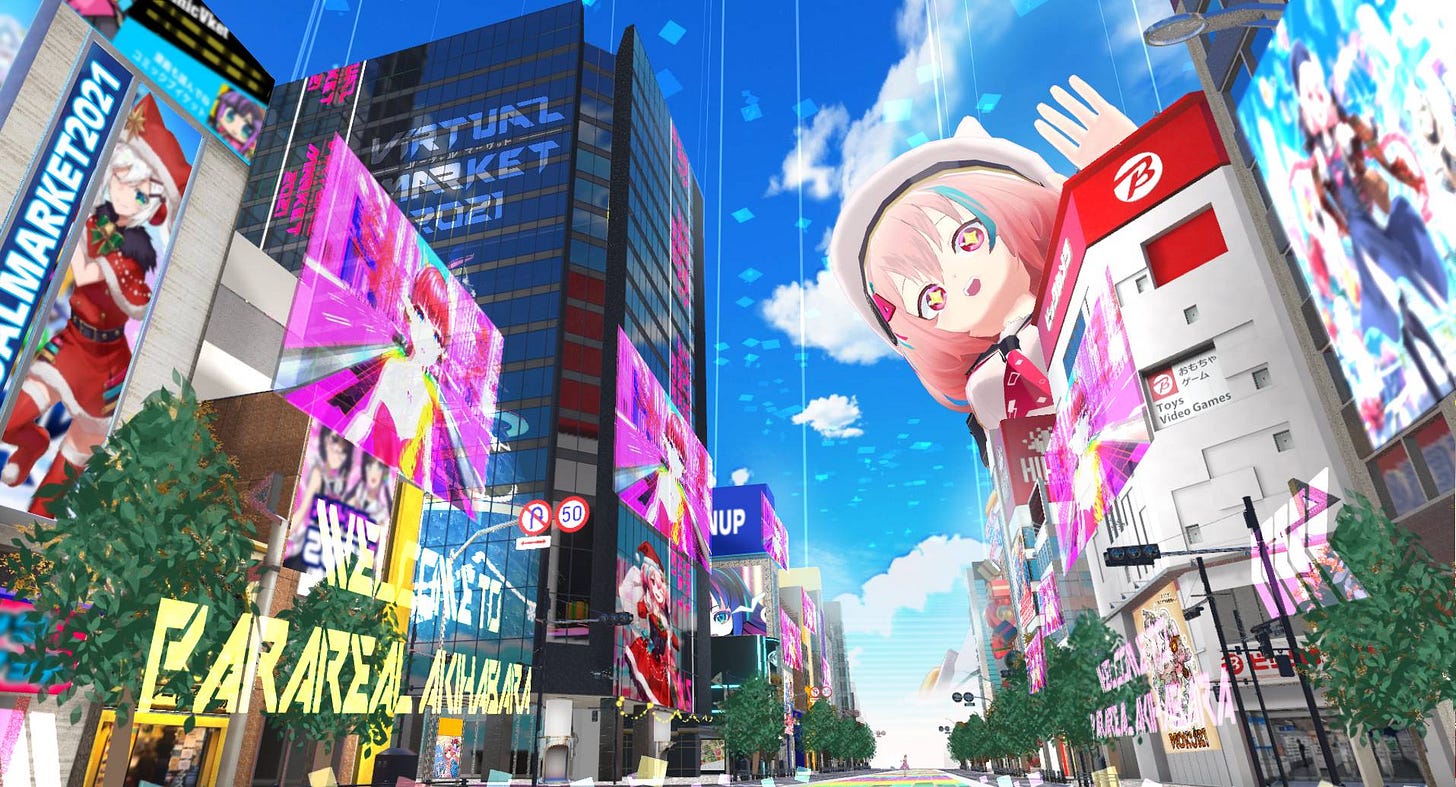Armed with anime avatars, Japan bids to conquer the metaverse
The nation’s penchant for online anonymity and well-established love of virtual idols could boost adoption, but early attempts offer cautionary tales
For one thing, the nation’s premier gadgets and technology showcase was back after a pandemic hiatus. For another, the most popular booth looked like it was teleported from the early 1990s — legions of high school students were queuing for time on a virtual reality headset providing the illusion of climbing neon-colored walls in a fantasy space. The difference this time around was branding: It’s now the metaverse.
Japan could gain an edge in this burgeoning field of immersive online worlds given the popularity of anime characters and virtual idols in the nation: Witness the boom in fictional, avatar-style YouTube celebrities such as virtual singers Hatsune Miku or Kizuna AI, each with hundreds of thousands of followers. Metaverse promoters feel this affinity for digital representations augurs well for the future.
Although it resists a clean and neat definition, the term “metaverse” connotes online technologies such as shared VR experiences, as well as augmented reality services that overlay graphics on real-world video feeds. According to some, the metaverse also encompasses online video games such as Fortnite, Roblox and Animal Crossing: New Horizons.
In any case, the goal is a space where users will want to spend their time and money, but that seems a distant dream for now — with Japan offering a cautionary tale of its own, too.

